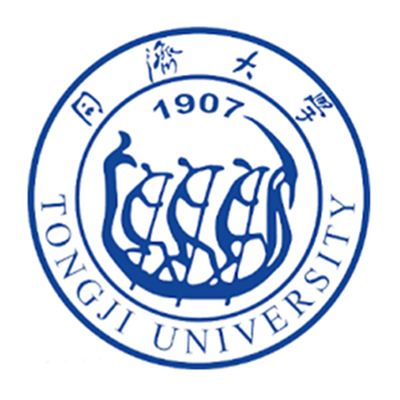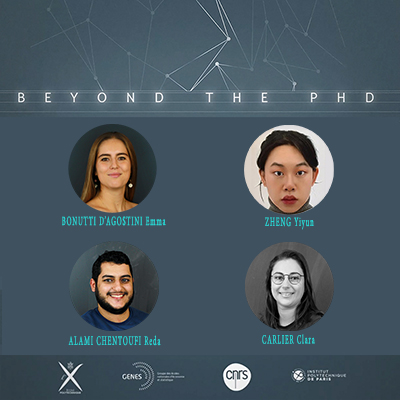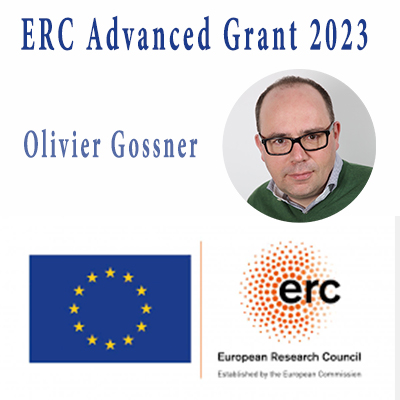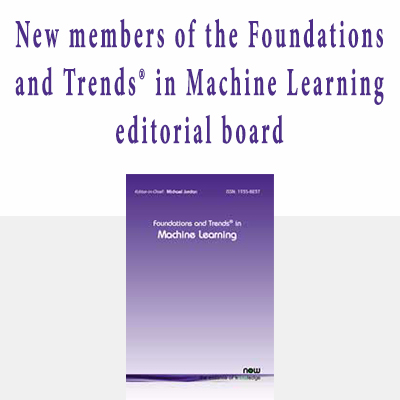Céline Grislain-Letrémy, est économiste-chercheur senior à la Banque de France et chercheur affilié au Centre de Recherche en Économie et Statistique (CREST).
Émission du lundi 6 mai 2024
Patricia Crifo received the Qidi award for contributing to SDGs set by UN
The Alumni Association of Tongji University in France organized the first “Qidi” award ceremony on Friday, April 19, 2024, in Shanghai. The event was supported by the Alumni Association of Tsinghua in France and was held at the Consulate Residence in Shanghai. Nearly 80 guests attended the ceremony.
The “Qidi” award was created by the Alumni Association of Tongji in France and honors two female scientists or engineers annually who have contributed to the 17 Sustainable Development Goals (SDGs) set by the United Nations member states in 2015. This distinction honors Professor WU Qidi, former president of Tongji University and former vice-minister of Chinese education, recognized for her work in fostering Franco-Chinese cooperation in the field of education. One of the main objectives of the award is to highlight female scientists and engineers and promote examples of female success to inspire young girls.
The 2023 Qidi Award winners were chosen from 11 candidates from 9 countries by a jury chaired by Professor WU Qidi. The award recipients are Professor Xiaoying Zhuang from Leibniz Universität Hannover in Germany and Tongji University in China, and Professor Patricia Crifo from École Polytechnique in Paris, recognized for their exceptional contributions to research and teaching.
At the ceremony, Professor Wu Qidi spoke and personally presented the awards to the two laureates. The Consul General of France in Shanghai, Mr. Joan Valadou, the Vice President of Innovation for Asia at Saint-Gobain, Mr. Alain Zanoli, and the representative of the Fondation de France, Mr. Julien-Loïc Garin, offered their congratulations to the laureates, emphasizing the importance of strengthening Franco-Chinese relations in scientific, technological, and educational fields and providing more opportunities for women in these sectors.
More information: https://mp.weixin.qq.com/s/W8lbJXF45AJj2UHwJwXoOA
Beyond the PhD – CREST Series 2: How would you define a PhD?
Last year, CREST introduced a new series of videos on the PhD theme. Léa Bou Sleiman & Martin Mugnier were interviewed for this first episode of “Beyond the PhD”. The 4th year economics PhD students present their career at CREST and their participation in the International Job Market.
In 2024, the Beyond the PhD series is focused on the definition of a PhD.
In doing so, four PhD students from CREST have participated in this interview series:
- Reda Alami Chentoufi, 1st year PhD student in Finance-Insurance (CREST-GENES)
- Emma Bonutti d’Agostini, 1st year PhD student in Sociology (CREST-GENES)
- Yiyun Zheng, 2nd year PhD student in Economics (CREST-Ecole polytechnique)
- Clara Carlier, 3rd year PhD student in Statistics (CREST-GENES)
With the participation of Prof. Emmanuelle Taugourdeau, Research Director at CNRS and Deputy Director at CREST, all four PhD students answered some questions about the PhD program: how would they describe it, what is of importance in a PhD and their recommendations to future PhD students.
All videos are now available on the CREST’s YouTube account.
We want here to promote the interview highlights that key points of all interviews in one.
Below, you will find all videos available in the scope of the Beyond the PhD video series 2.
Une interview de Vianney Perchet, coordinateur du projet BOLD, qui vise à améliorer l’apprentissage séquentiel
Une interview de Vianney Perchet, coordinateur du projet BOLD, qui vise à améliorer l’apprentissage séquentiel
18.04.2024
Olivier Gossner, recipient of the 2023 ERC Advanced Grant
Olivier Gossner, CNRS Senior Researcher, recipient of the 2023 ERC Advanced Grant
Arnak Dalalyan and Vianney Perchet nominated as new members of the editorial board of the journal “Foundations and Trends® in Machine Learning”.
Arnak Dalalyan and Vianney Perchet nominated as new members of the editorial board of the journal “Foundations and Trends® in Machine Learning”.
Printemps de l’Economie 2024 : Un monde fragmenté par les inégalités : les effets de la redistribution en Europe
Session INSEE, conçue par Lionel Janin, Directeur du cabinet du Directeur général de l’INSEE Intervenants :
- Orsetta Causa, Cheffe adjointe de la division Surveillance structurelle, Responsable de l’équipe marché du travail et inégalités, Département des affaires économiques de l’OCDE
- Bertrand Garbinti, Enseignant-Chercheur CREST-ENSAE-GENES-Institut Polytechnique Paris, Chercheur affilié au CEPR, WIL & IPP, Chercheur associé à l’INED & EU Tax observatory
- Jean-Marc Germain, Conseiller du Directeur général de l’Insee
- Elvire Guillaud, Maître de conférences en Économie à l’Université Paris 1 Panthéon-Sorbonne, Chercheuse au Centre d’Économie de la Sorbonne, Affiliée au Laboratoire Interdisciplinaire d’Évaluation des Politiques Publiques (LIEPP) de Sciences Po
Modérateur : Lionel Janin, Directeur du cabinet du Directeur général de l’INSEE
Le Cercle des Économistes : une interview de Céline GRISLAIN-LETREMY pour le podcast Génération Économie
Dans ce nouvel épisode de Génération Économie interview Céline Grislain-Letrémy, chercheuse affiliée au Centre de recherche en économie et statistique (CREST) et autrice de billets de blog pour la Banque de France. Avec elle pour en parler, Léocadie, économiste à la direction générale du Trésor et membre du projet Jeunesse(s) du Cercle des économistes.
Une Tribune de Pierre Rousseaux pour le journal l’Opinion
Une Tribune de Pierre Rousseaux pour le journal l’Opinion
Publié le 5 avril 2024
Giovanni Ricco, recipient of the 2024 AEJ Best Paper Awards in Macroeconomics
The American Economic Association announced the list of Award Reciptients for 2024.
Giovanni Ricco, Professor at Ecole polytechnique, received the annual American Economic Journal (AEJ) Best Paper Awards for his work with Silvia Miranda-Agrippino, Research Economist in the Monetary Policy Division at the Federal Reserve Bank of New York and a Research Affiliate in the Monetary Economics and Fluctuations (MEF) programme of the CEPR. The paper was published in 2021, in the American Economic Journal: Macroeconomics, while Giovanni Ricco was a Professor in the Department of Economics at University of Warwick.
The annual American Economic Journal (AEJ) Best Paper Awards highlight the best paper published in each of the American Economic Journals: Applied Economics, Economic Policy, Macroeconomics, and Microeconomics over the last three years. Nominations are provided by AEA members, and winners are selected by the journals’ Boards of Editors. Complimentary full-text articles are available at https://www.aeaweb.org/about-aea/honors-awards/aej-best-papers.
“The transmission of Monetary Policy Shocks” by Silvia Miranda-Agrippino and Giovanni Ricco – 13(3), (pp. 74-107) July 2021
Commonly used instruments for the identification of monetary policy disturbances are likely to combine the true policy shock with information about the state of the economy due to the information disclosed through the policy action. We show that this signaling effect of monetary policy can give rise to the empirical puzzles reported in the literature, and propose a new high-frequency instrument for monetary policy shocks that accounts for informational rigidities. We find that a monetary tightening is unequivocally contractionary, with deterioration of domestic demand, labor and credit market conditions as well as of asset prices and agents’ expectations.
More information on the article: The Transmission of Monetary Policy Shocks










